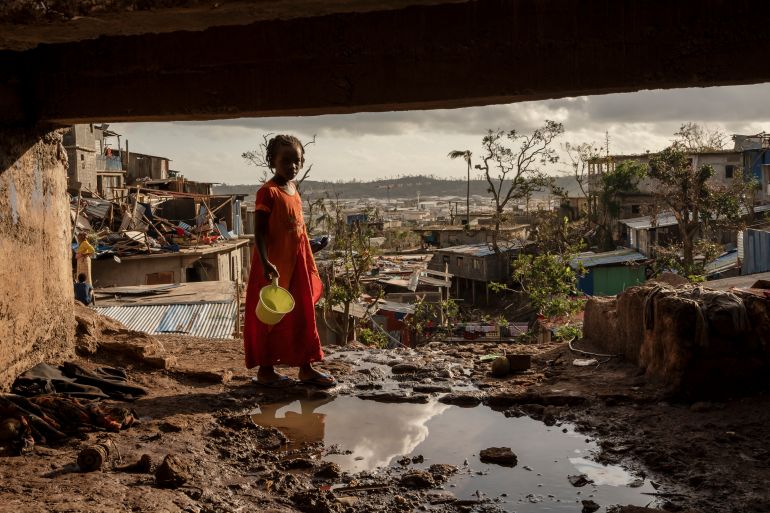Extreme weather disrupts schooling for nearly 250 million kids, UNICEF says
UN agency says students in 85 countries experienced climate-related disruptions last year.

Published On 24 Jan 202524 Jan 2025
At least 242 million students had their education disrupted last year because of heatwaves, cyclones, floods and other extreme weather events, the United Nations children’s agency has said.
Heatwaves were the most disruptive climate event, with Bangladesh, the Philippines and Cambodia experiencing widespread school closures and reduced schooling hours, UNICEF said in a report released on Friday.
Recommended Stories
list of 4 itemsend of list
Afghanistan was among a number of countries to face multiple climate hazards, with the country facing heatwaves as well as severe flash floods that damaged or destroyed more than 110 schools in May, UNICEF said.
Global temperatures hit an all-time high in 2024, with the Earth’s average surface temperature rising 1.55 degrees Celsius (2.79 degrees Fahrenheit) above the 1850-1900 average, according to the World Meteorological Organization.
“Children are more vulnerable to the impacts of weather-related crises, including stronger and more frequent heatwaves, storms, droughts and flooding,” UNICEF executive director Catherine Russell said.
Advertisement
“Children’s bodies are uniquely vulnerable. They heat up faster, they sweat less efficiently and cool down more slowly than adults. Children cannot concentrate in classrooms that offer no respite from sweltering heat, and they cannot get to school if the path is flooded, or if schools are washed away.”
In total, 85 countries experienced climate-related school disruptions, including 20 countries that saw disruptions nationwide, according to UNICEF.
Of the nearly 250 million students affected, 74 percent were in middle and low-income countries.
South Asia was the worst-affected region, with about 128 million students facing climate-related upheaval, followed by East Asia and the Pacific, according to UNICEF.
September recorded the most frequent disruptions, with at least 18 countries suspending classes, according to the UN agency.
“Education is one of the services most frequently disrupted due to climate hazards. Yet it is often overlooked in policy discussions, despite its role in preparing children for climate adaptation,” Russell said.
“Children’s futures must be at the forefront of all climate-related plans and actions.”
